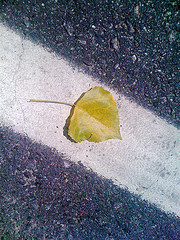Una duda sobre Rochester
Entre los poemas de John Wilmot, conde de Rochester (1647-1680), se encuentra una versión de un fragmento de Séneca (Troades, II, final del coro). Es un manifiesto ateo, escrito al parecer poco antes de la célebre conversión del libertino conde narrada por Burnet. Pocos cantos al ateísmo se encuentran en esta época; denuncia Rochester, con la excusa de traducir a Séneca, la vanidad de creer en la vida eterna y en la inmortalidad del alma, y en los infiernos.
After Death nothing is, and nothing Death;
The utmost Limits of a gasp of Breath.
Let the ambitious Zealot lay aside
His hopes of Heav’n; (whose Faith is but his Pride)
Let slavish Souls lay by their Fear,
Nor be concern’d which way or where,
After this life they shall be hurl’d:
Dead, we become the Lumber of the World;
And to that Mass of Matter shall be swept,
Where things destroy’d, with things unborn are kept;
Devouring time swallows us whole,
Impartial Death confounds Body and Soul.
For Hell, and the foul Fiend that rules
The everlasting fiery Gaols,
Devis’d by Rogues, dreaded by Fools
With his grim griesly Dog that keeps the Door,
Are senseless Stories, idle Tales,
Dreams, Whimseys, and no more.
La duda es si incluye a Dios en el lote: en el antepenúltimo verso, podemos invertir las dos palabras que empiezan por D mayúscula, resultando lo siguiente:
With his grim griesly God that keeps the Rood.
¿Es intencionado? ¿Se autocensuraba Rochester, o sólo jugaba? ¿O es una casualidad, "Dreams, Whimseys and no more"? Nadie lo sabe (nadie sabe nada). Hay que decidirlo.

1 comentario
Hester Prynne -
By the way, dice mi profesor, con el que este semestre hemos estudiado a los metafísicos etc, que Rochester el de "Jane Eyre" no se llamaba así por casualidad, sino que probablemente mi Brontë favorita se lo puso por John Wilmot... ¿Buscamos donde no hay o será verdad? Un beso de la whitwoman wannabe ;-)